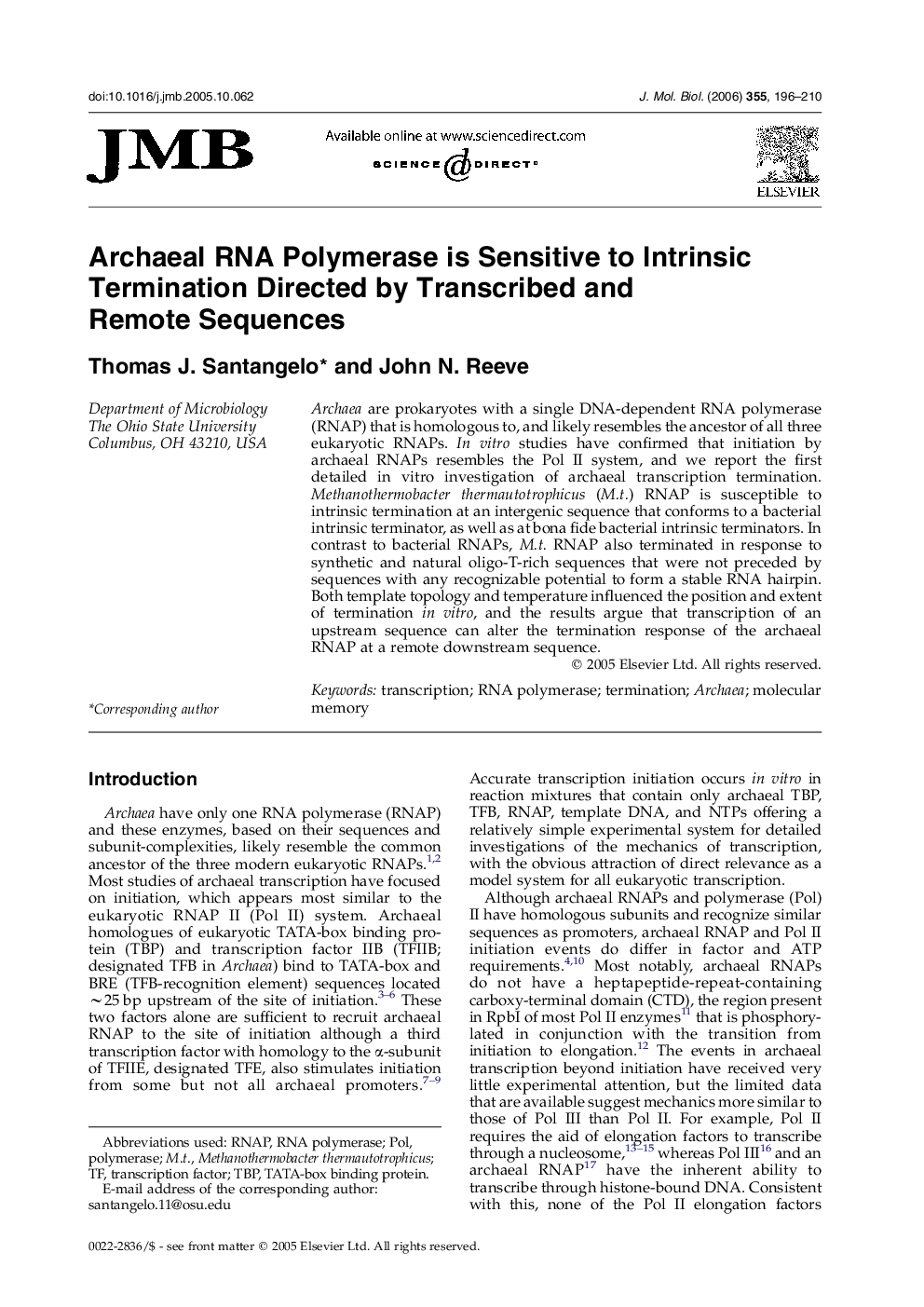| Article ID | Journal | Published Year | Pages | File Type |
|---|---|---|---|---|
| 2189767 | Journal of Molecular Biology | 2006 | 15 Pages |
Archaea are prokaryotes with a single DNA-dependent RNA polymerase (RNAP) that is homologous to, and likely resembles the ancestor of all three eukaryotic RNAPs. In vitro studies have confirmed that initiation by archaeal RNAPs resembles the Pol II system, and we report the first detailed in vitro investigation of archaeal transcription termination. Methanothermobacter thermautotrophicus (M.t.) RNAP is susceptible to intrinsic termination at an intergenic sequence that conforms to a bacterial intrinsic terminator, as well as at bona fide bacterial intrinsic terminators. In contrast to bacterial RNAPs, M.t. RNAP also terminated in response to synthetic and natural oligo-T-rich sequences that were not preceded by sequences with any recognizable potential to form a stable RNA hairpin. Both template topology and temperature influenced the position and extent of termination in vitro, and the results argue that transcription of an upstream sequence can alter the termination response of the archaeal RNAP at a remote downstream sequence.
